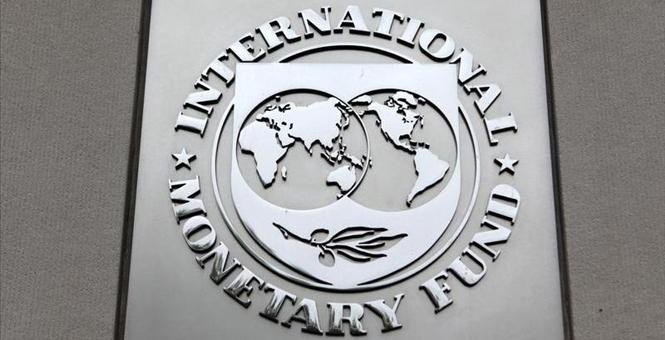It s not easy being a financial advisor
Post on: 16 Апрель, 2015 No Comment

Its not easy, being a financial advisor
By Felix Salmon
July 14, 2011
Last week, Scott Bell wrote a wonderful and heartfelt post about what it’s like being a financial advisor.
data-share-img= data-share=twitter,facebook,linkedin,reddit,google data-share-count=true>
Last week, Scott Bell wrote a wonderful and heartfelt post about what its like being a financial advisor.
I’ll tell you to sell something because a trend is broken or a target is reached, or you need money and I picked that one… the one that went up still. And I’ll hear about it whenever something else is down.
We’re supposed to have read that great article on page 5 of the business section in the LA Times about GE. And when I say I didn’t, I can actually feel the shock and disgust oozing through the phone. The disappointment…
We’re supposed to know about every single product being advertised and whether the new one is better than the one we have. We’re supposed to be compared to every portfolio at your friends’ next cocktail party
I don’t have a magic bullet or crystal ball, but somehow I’m still supposed to know. Even though you know I don’t know, you still have it in your head that I do (or else why are you paying me). And this irrational double talk in your head only shows its face when your greed or fear kick into overdrive. You know, the time you are least logical for us to talk about your money.
It really is a gruesome job, being a broker the kind of people who hire you tend to have ridiculous expectations when it comes to what you can do with their money. (Anything less than 10% annualized is a disappointment, as a rule.) They all want to outperform the market, they all want high return with low risk and they are quite happy contradicting themselves on a regular basis.
And on the other side of things, its not much easier being a client. A reader sent me a note today that they got from their broker. It advises a big restructuring of their portfolio: a bunch of funds should be sold and a bunch of similar funds should be bought. The asset allocation ends up pretty much the same, but the vehicles change. And in the course of an eight-page letter, the reason for doing this mass purge is dealt with swiftly indeed:
The funds we are recommending that you sell have in the most part demonstrated performance that has not been in line with our expectations and we feel you would benefit from switching into more prosperous and more diversified holdings
The property sector has experienced a turbulent time since the financial crisis and in most part has not fully recovered and we feel there are better opportunities in this sector for you to benefit from.

On the basis of this advice, the broker is recommending a six-figure decision representing an enormous proportion of his clients net worth and the advice, boiled down, comes down to a pretty tautological were recommending this course of action because we think you will benefit from it.
The deeper thing going on here is what might charitably be called a momentum trade, or what might less charitably be called a sell-low strategy. First you pick your sector, then you pick funds in that sector. If the funds do well, thats great; if they do badly, then you sell those funds and instead you buy funds which did do well over the time period in question. Then, next year, presumably, you rinse and repeat.
If youre a remotely normal person, youre not qualified to pick stocks and neither do you have the self-confidence to even try. So instead you outsource your stock-picking and buy mutual funds. But this just shunts the problem down the road: if youre not qualified to pick stocks, what qualifies you to pick mutual funds? After all, there are just as many funds to choose from as there are stocks. So you punt again and outsource your fund-picking to a financial advisor. And all the while you know youre still not much better off: however many stocks and mutual funds there are, the number of financial advisors is greater still. If you cant pick a stock or pick a mutual fund, what makes you think you can pick a financial advisor?
The relationship between you and your advisor, then, is a bit rocky from the beginning: youre paying the advisor to pay mutual fund managers to invest your money in stocks which might well underperform. Theres a lot of fear and greed in there, neither of which make for particularly clear-headed conversations or decisions. And then to make matters worse, your advisor is likely to treat you like he treats most of his other clients. That means that hell recommend you do something or other on a regular basis, since most clients think a broker who doesnt do anything is wasting their money. (In fact, a broker who does do something is probably wasting their money; a broker who doesnt do anything is saving them money. But most clients dont think that way.)
All of which is why my standard advice to everyone is to simply buy index funds and rebalance every so often, if and when you get around to it. Because its silly having an advisor if you dont take their advice but at the same time theres no particular reason to believe that your brokers advice is particularly good, or that something like a sell the funds which have underperformed of late strategy is actually a sensible one, or is liable to work well over the long term.
And its hard to have that kind of meta-conversation with your broker, too, because brokers dont get paid nearly as much as they used to and are often not particularly smart or sophisticated. (I hasten to add that smart and sophisticated brokers arent necessarily better at being brokers; they just might be a bit better at giving a good answer to questions like does it make sense to sell funds which have gone down in value, and if so, when should you do so.)
If you look at the 14-figure sums being managed by financial advisors, its easy to see how incompetence and rampant emotion and waste and fraud and messiness can easily result in billions of dollars flowing from dumb investors to the smart Wall Street crowd every year. And its equally easy to blame Wall Street generally, and brokers in particular, for that waste. But irrational and emotional individual investors deserve their own fair share of the blame. Financial advisors are dealt a nasty hand, much of the time. So before we blame them for things which seem wrong, we should probably ask ourselves what exactly were hiring them to do in the first place and whether our expectations are remotely reasonable.














